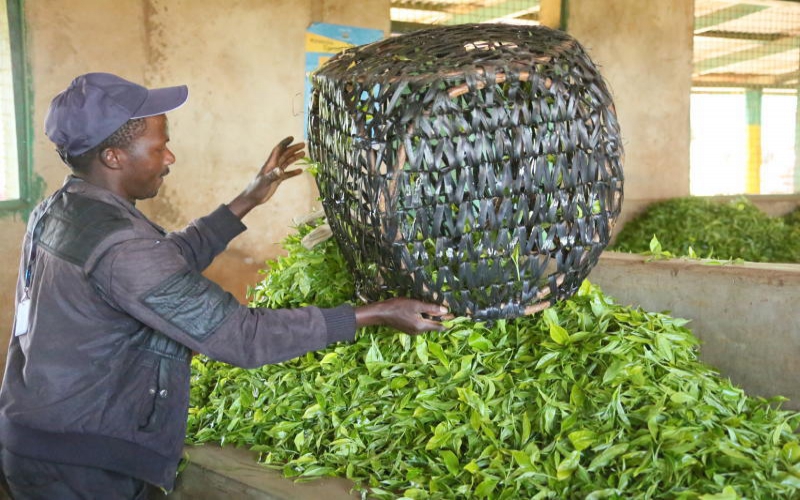×
The Standard e-Paper
Fearless, Trusted News

A tea farmer affiliated with Gathuthi Tea Factory delivers his produce at Ndugamano Tea Buying Collection Center. [Kibata Kihu, Standard]
Cabinet Secretary for Agriculture Peter Munya has said the government will zero-rate Value Added Tax on tea in order to boost value added exports as well as increase consumption of locally packed tea.